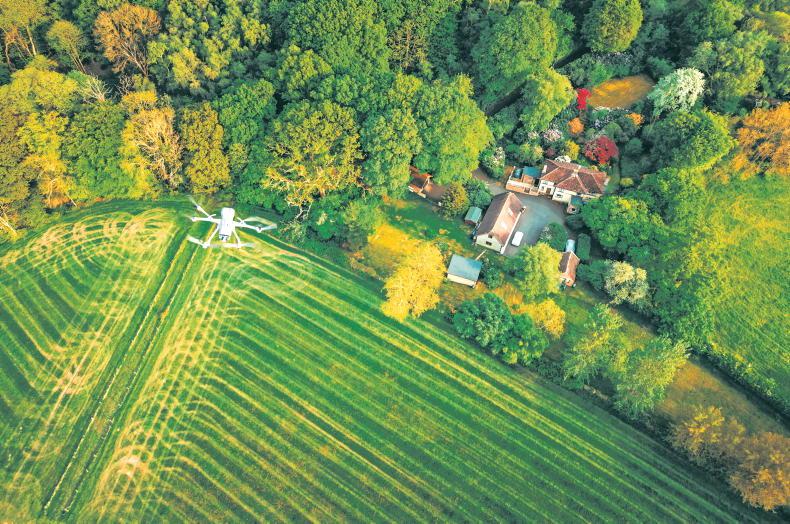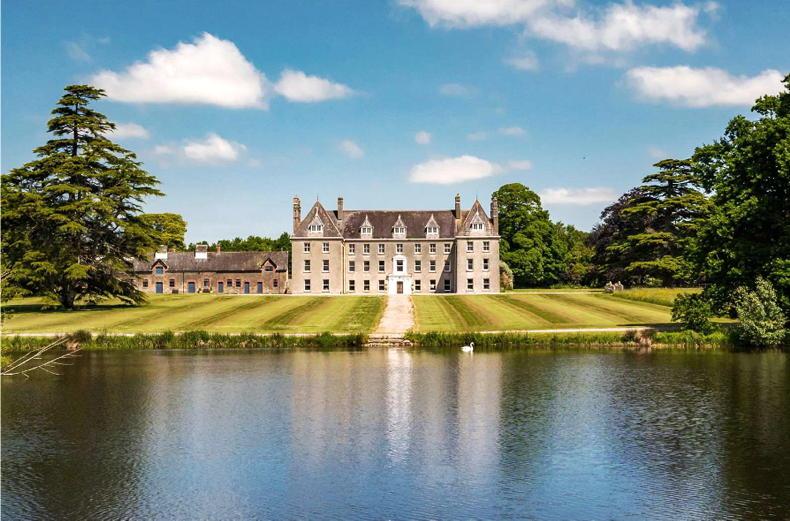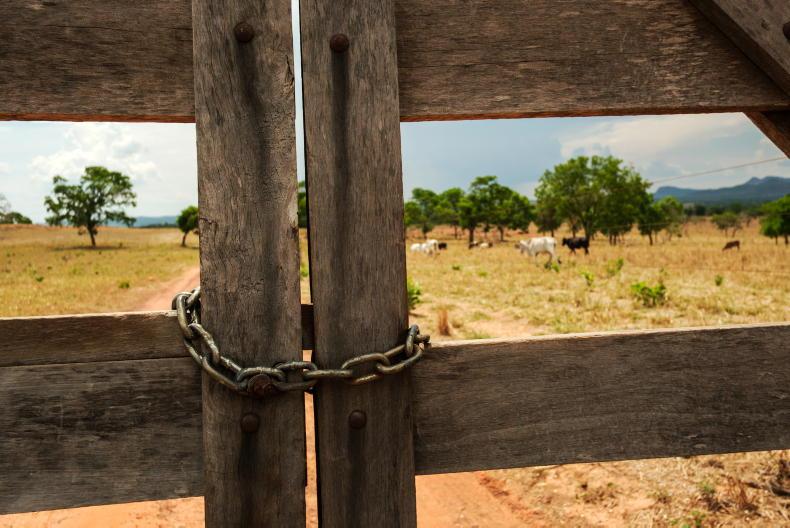Question: I believe criminals are using estate agent photos to plan the robbery of out- buildings and home heating oil.
This worries me because a local estate agent has included my property in some of their online adverts. We are in a coastal town and my land sits between inland properties and the coast. It is used to show proximity to the sea. Photos of the garden have been online for sites with planning for most of a year now.
Can I insist that estate agents blur my property boundary or remove the photos please?
Answer: There has been a notable case in England recently where an injunction was granted against individuals operating drones over private property. In the 2023 case of Anglo International Upholland Ltd v Wainwright and Persons Unknown, the High Court addressed issues of trespass and nuisance involving drone flights.
In this case, the claimant owned a large estate that included a dilapidated seminary. The defendants, including Mr Wainwright and other unidentified individuals, were flying drones over the property to capture photographs and videos, which were then shared online. The court found that these drone flights facilitated and encouraged further trespass onto the property, posing safety risks due to the site’s condition. The court held that while the act of flying a drone at a reasonable height might not constitute trespass, using drones to capture images that encouraged further trespass rendered the flights unreasonable. As a result, the court granted an injunction against Mr Wainwright and persons unknown, prohibiting them from flying drones over the claimant’s property.
This case sets a precedent in English law, often followed by Irish courts, indicating that drone flights over private property can be subject to legal action, especially when they facilitate or encourage trespass.
In Ireland, drone operators must comply with the Irish Aviation Authority (IAA) regulations and General Data Protection Regulation (GDPR) when taking pictures or videos.
So what can you do? Start by asking the operator to stop if you know who they are; report to the Gardaí if you believe your privacy is being violated; or report to the IAA if the drone is being operated illegally. Then if the footage is used without consent, you can raise a GDPR complaint with the Data Protection Commissioner.
Drone regulations
Drones over 250g or equipped with a camera must be registered with the IAA. Drone pilots must follow operational rules, including not flying above 120m, keeping at least 30m away from people and avoiding flying over private property without permission (unless at a safe height). If a drone operator fails to comply with IAA regulations, they may face:
Fines of up to €5,000 for illegal drone use.Prosecution and court appearances for serious offences.Confiscation of the drone if used in a reckless or dangerous manner.If a drone captures identifiable images of people or property, this falls under GDPR, meaning the drone operator must have a legal basis for collecting the data. Using a drone for personal use (not commercial) may be exempt under the household exemption of GDPR, but if the footage is shared publicly (eg online), it could be a breach of privacy laws.Investigation of complaints
If a drone captures identifiable images or videos of individuals without their knowledge or consent, the affected person can file a complaint with the Data Protection Commissioner (DPC). The DPC will review whether the drone operator had a valid legal basis for processing personal data. Examples of when a drone operator would not have a legal basis would include:
Flying over a private garden and recording without permission.Using a drone to spy on people or their property.Sharing footage of identifiable people without a valid legal reason.Recording in a way that violates reasonable expectations of privacy.Penalties for violations
The DPC can issue warnings, reprimands, or corrective orders. Fines can reach up to €20m or 4% of the drone operator’s annual turnover for severe breaches. Individuals may also seek compensation for damages caused by unauthorised surveillance. The DPC may order the deletion of unlawfully collected footage. If the footage is shared online, the operator may be required to take it down and cease further processing. You can file a complaint with the DPC at dataprotection.ie. You will need to provide evidence (eg,drone footage, witness statements, screenshots). The DPC may then investigate and take action against the drone operator.
The information in this article is intended as a guide only. While every care is taken to ensure accuracy of information contained in this article, Aisling Meehan, Agricultural Solicitors and Tax Consultants does not accept responsibility for errors or omissions howsoever arising. Email aisling@agrisolicitors.ie
Question: I believe criminals are using estate agent photos to plan the robbery of out- buildings and home heating oil.
This worries me because a local estate agent has included my property in some of their online adverts. We are in a coastal town and my land sits between inland properties and the coast. It is used to show proximity to the sea. Photos of the garden have been online for sites with planning for most of a year now.
Can I insist that estate agents blur my property boundary or remove the photos please?
Answer: There has been a notable case in England recently where an injunction was granted against individuals operating drones over private property. In the 2023 case of Anglo International Upholland Ltd v Wainwright and Persons Unknown, the High Court addressed issues of trespass and nuisance involving drone flights.
In this case, the claimant owned a large estate that included a dilapidated seminary. The defendants, including Mr Wainwright and other unidentified individuals, were flying drones over the property to capture photographs and videos, which were then shared online. The court found that these drone flights facilitated and encouraged further trespass onto the property, posing safety risks due to the site’s condition. The court held that while the act of flying a drone at a reasonable height might not constitute trespass, using drones to capture images that encouraged further trespass rendered the flights unreasonable. As a result, the court granted an injunction against Mr Wainwright and persons unknown, prohibiting them from flying drones over the claimant’s property.
This case sets a precedent in English law, often followed by Irish courts, indicating that drone flights over private property can be subject to legal action, especially when they facilitate or encourage trespass.
In Ireland, drone operators must comply with the Irish Aviation Authority (IAA) regulations and General Data Protection Regulation (GDPR) when taking pictures or videos.
So what can you do? Start by asking the operator to stop if you know who they are; report to the Gardaí if you believe your privacy is being violated; or report to the IAA if the drone is being operated illegally. Then if the footage is used without consent, you can raise a GDPR complaint with the Data Protection Commissioner.
Drone regulations
Drones over 250g or equipped with a camera must be registered with the IAA. Drone pilots must follow operational rules, including not flying above 120m, keeping at least 30m away from people and avoiding flying over private property without permission (unless at a safe height). If a drone operator fails to comply with IAA regulations, they may face:
Fines of up to €5,000 for illegal drone use.Prosecution and court appearances for serious offences.Confiscation of the drone if used in a reckless or dangerous manner.If a drone captures identifiable images of people or property, this falls under GDPR, meaning the drone operator must have a legal basis for collecting the data. Using a drone for personal use (not commercial) may be exempt under the household exemption of GDPR, but if the footage is shared publicly (eg online), it could be a breach of privacy laws.Investigation of complaints
If a drone captures identifiable images or videos of individuals without their knowledge or consent, the affected person can file a complaint with the Data Protection Commissioner (DPC). The DPC will review whether the drone operator had a valid legal basis for processing personal data. Examples of when a drone operator would not have a legal basis would include:
Flying over a private garden and recording without permission.Using a drone to spy on people or their property.Sharing footage of identifiable people without a valid legal reason.Recording in a way that violates reasonable expectations of privacy.Penalties for violations
The DPC can issue warnings, reprimands, or corrective orders. Fines can reach up to €20m or 4% of the drone operator’s annual turnover for severe breaches. Individuals may also seek compensation for damages caused by unauthorised surveillance. The DPC may order the deletion of unlawfully collected footage. If the footage is shared online, the operator may be required to take it down and cease further processing. You can file a complaint with the DPC at dataprotection.ie. You will need to provide evidence (eg,drone footage, witness statements, screenshots). The DPC may then investigate and take action against the drone operator.
The information in this article is intended as a guide only. While every care is taken to ensure accuracy of information contained in this article, Aisling Meehan, Agricultural Solicitors and Tax Consultants does not accept responsibility for errors or omissions howsoever arising. Email aisling@agrisolicitors.ie









SHARING OPTIONS